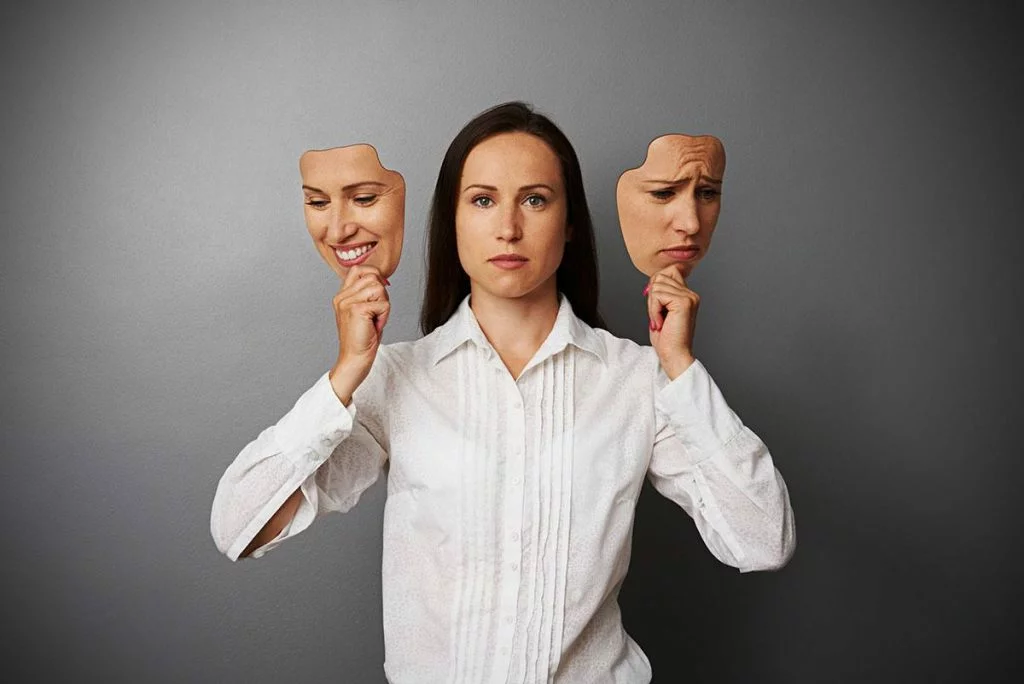PERSONALITY DISORDERS
Personality disorders are a group of mental health conditions characterized by inflexible and maladaptive patterns of thinking, feeling, and behaving. These patterns deviate significantly from cultural norms and cause significant distress or impairment in a person’s life.
Unlike occasional anxieties or fleeting mood swings, personality disorders are entrenched and enduring, often beginning in late adolescence or early adulthood and persisting throughout life.
Understanding Personality Disorders: Beyond Quirks
We all have our quirks and eccentricities. But personality disorders are more than just being eccentric or unconventional. Here’s what sets them apart:

- Pervasiveness: Personality disorders affect a wide range of areas in a person’s life, including relationships, work, and social interactions.
- Inflexibility: The patterns of thinking and behavior are rigid and inflexible, making it difficult for individuals to adapt to changing situations.
- Distress: The personality traits cause significant distress for the person with the disorder and can also negatively impact those around them.
The Many Faces of Personality Disorders: A Diagnostic Landscape
The Diagnostic and Statistical Manual of Mental Disorders, Fifth Edition (DSM-5), outlines ten specific personality disorders, which can be broadly grouped into three clusters:
- Cluster A (Odd or Eccentric Cluster): This cluster includes paranoid personality disorder, schizoid personality disorder, and schizotypal personality disorder. Individuals with these disorders may have difficulty trusting others, may be withdrawn and isolated, or may have odd beliefs and perceptions.
- Cluster B (Dramatic, Erratic, or Emotional Cluster): This cluster encompasses antisocial personality disorder, borderline personality disorder, histrionic personality disorder, and narcissistic personality disorder. People with these disorders may exhibit impulsive behaviors, have difficulty maintaining stable relationships, or have an inflated sense of self-importance.
- Cluster C (Anxious or Fearful Cluster): This cluster includes avoidant personality disorder, dependent personality disorder, and obsessive-compulsive personality disorder. Individuals with these disorders may be intensely fearful of social situations, have difficulty making decisions on their own, or be preoccupied with orderliness and control.
Lifting the Veil: Causes and Risk Factors of Personality Disorders
The exact cause of personality disorders is unknown, but it’s likely a complex interplay of factors:
- Genetics: Studies suggest that there may be a genetic predisposition to personality disorders, but genes are not deterministic.
- Brain Abnormalities: Research indicates that some personality disorders may be associated with structural or functional differences in the brain.
- Environmental Factors: Childhood trauma, neglect, or abuse can increase the risk of developing a personality disorder.
Finding the Path to Change: Treatment Options for Personality Disorders
While personality disorders are considered long-term conditions, there is hope for positive change. Here are some common treatment approaches:
- Psychotherapy: Therapy, particularly modalities like dialectical behavior therapy (DBT) or cognitive-behavioral therapy (CBT), can help individuals identify and modify unhelpful thought patterns and develop healthier coping mechanisms.
- Medication: Medications like antidepressants or mood stabilizers may be used to manage symptoms like anxiety or depression that often co-occur with personality disorders.
- Social Skills Training: Individuals can learn effective communication and interpersonal skills to improve their relationships.

Personality disorders are a group of mental health conditions characterized by inflexible and maladaptive patterns of thinking, feeling, and behaving. These patterns deviate significantly from cultural norms and cause significant distress or impairment in a person’s life.
Unlike occasional anxieties or fleeting mood swings, personality disorders are entrenched and enduring, often beginning in late adolescence or early adulthood and persisting throughout life.
Understanding Personality Disorders: Beyond Quirks
We all have our quirks and eccentricities. But personality disorders are more than just being eccentric or unconventional. Here’s what sets them apart:
- Pervasiveness: Personality disorders affect a wide range of areas in a person’s life, including relationships, work, and social interactions.
- Inflexibility: The patterns of thinking and behavior are rigid and inflexible, making it difficult for individuals to adapt to changing situations.
- Distress: The personality traits cause significant distress for the person with the disorder and can also negatively impact those around them.
The Many Faces of Personality Disorders: A Diagnostic Landscape
The Diagnostic and Statistical Manual of Mental Disorders, Fifth Edition (DSM-5), outlines ten specific personality disorders, which can be broadly grouped into three clusters:
- Cluster A (Odd or Eccentric Cluster): This cluster includes paranoid personality disorder, schizoid personality disorder, and schizotypal personality disorder. Individuals with these disorders may have difficulty trusting others, may be withdrawn and isolated, or may have odd beliefs and perceptions.
- Cluster B (Dramatic, Erratic, or Emotional Cluster): This cluster encompasses antisocial personality disorder, borderline personality disorder, histrionic personality disorder, and narcissistic personality disorder. People with these disorders may exhibit impulsive behaviors, have difficulty maintaining stable relationships, or have an inflated sense of self-importance.
- Cluster C (Anxious or Fearful Cluster): This cluster includes avoidant personality disorder, dependent personality disorder, and obsessive-compulsive personality disorder. Individuals with these disorders may be intensely fearful of social situations, have difficulty making decisions on their own, or be preoccupied with orderliness and control.
Lifting the Veil: Causes and Risk Factors of Personality Disorders
The exact cause of personality disorders is unknown, but it’s likely a complex interplay of factors:
- Genetics: Studies suggest that there may be a genetic predisposition to personality disorders, but genes are not deterministic.
- Brain Abnormalities: Research indicates that some personality disorders may be associated with structural or functional differences in the brain.
- Environmental Factors: Childhood trauma, neglect, or abuse can increase the risk of developing a personality disorder.
Finding the Path to Change: Treatment Options for Personality Disorders
While personality disorders are considered long-term conditions, there is hope for positive change. Here are some common treatment approaches:
- Psychotherapy: Therapy, particularly modalities like dialectical behavior therapy (DBT) or cognitive-behavioral therapy (CBT), can help individuals identify and modify unhelpful thought patterns and develop healthier coping mechanisms.
- Medication: Medications like antidepressants or mood stabilizers may be used to manage symptoms like anxiety or depression that often co-occur with personality disorders.
- Social Skills Training: Individuals can learn effective communication and interpersonal skills to improve their relationships.


